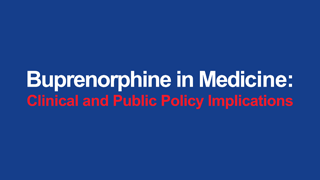Using methadone to treat opioid-induced hyperalgesia and refractory pain
DOI:
https://doi.org/10.5055/jom.2007.0048Keywords:
opioid-induced hyperalgesia, methadone, opioid rotation, opioid toleranceAbstract
A patient was treated for several years with high doses of opioids for malignant pain. During a recent hospitalization, the patient’s pain remained uncontrolled despite escalating doses of various opioids. We suspected that this patient suffered from the clinical phenomenon of opioid-induced hyperalgesia (OIH). The patient was then rotated from her other opioids to methadone, and her pain was adequately controlled within several days. Methadone, because of its NMDA antagonist properties, offers an effective treatment for OIH. The use of methadone for analgesia is complex and should be undertaken only by practitioners who have appropriate experience.References
Ballantyne JC: Opioids for chronic nonterminal pain. South Med J. 2006; 99(11): 1245-1255.
Chou R, Clark E, Helfand M: Comparative efficacy and safety of long-acting oral opioids for chronic non-cancer pain: A systematic review. J Pain Symptom Manage. 2003; 26(5): 1026-1048.
Ballantyne JC, Mao J: Opioid therapy for chronic pain. N Engl J Med. 2003; 349(20): 1943-1953.
Portenoy RK, Foley KM: Chronic use of opioid analgesics in nonmalignant pain: Report of 38 cases. Pain. 1986; 25(2): 171-186.
Kalso E, Edwards JE, Moore RA, et al.: Opioids in chronic non-cancer pain: Systematic review of efficacy and safety. Pain. 2004; 112(3): 372-380.
Zenz M, Strumpf M, Tryba M: Long-term oral opioid therapy in patients with chronic nonmalignant pain. J Pain Symptom Manage. 1992; 7(2): 69-77.
Haythornthwaite JA, Menefee LA, Quatrano-Piacentini AL, et al.: Outcome of chronic opioid therapy for non-cancer pain. J Pain Symptom Manage. 1998; 15(3): 185-194.
Angst MS, Clark JD: Opioid-induced hyperalgesia: A qualitative systematic review. Anesthesiology. 2006; 104(3): 570-587.
Teuteberg WG: Fast Fact and Concept #142: Opioid-Induced Hyperalgesia. End of Life/Palliative Education Resource Center Web site. Available at www.eperc.mcw.edu/fastFact/ff_142.htm. Accessed March 28, 2007.
Compton P, Athanasos P, Elashoff D: Withdrawal hyperalgesia after acute opioid physical dependence in nonaddicted humans: A preliminary study. J Pain. 2003; 4(9): 511-519.
Angst MS, Koppert W, Pahl I, et al.: Short-term infusion of the mu-opioid agonist remifentanil in humans causes hyperalgesia during withdrawal. Pain. 2003; 106(1-2): 49-57.
Reznikov I, Pud D, Eisenberg E: Oral opioid administration and hyperalgesia in patients with cancer or chronic nonmalignant pain. Br J Clin Pharmacol. 2005; 60(3): 311-318.
Zimmerman C, Seccareccia D, Booth CM, et al.: Rotation to methadone after opioid dose escalation: How should individu-alization of dosing occur? J Pain Palliat Care Pharmacother. 2005; 19(2): 25-31.
Mercadante S, Arcuri E: Hyperalgesia and opioid switching. Am J Hosp Palliat Care. 2005; 22(4): 291-294.
Indelicato RA, Portenoy RK: Opioid rotation in the management of refractory cancer pain. J Clin Oncol. 2002; 20(1): 348-352.
Obenrader J: Equianalgesic Dosing of Opioids for Pain Management. Therapeutic Research Center, Pharmacist’s Letter/Prescriber’s Letter 2004. Detail Document 200915.
Gazelle G, Fine PG: Fast Fact and Concept #75: Methadone for the Treatment of Pain. End of Life/Palliative Education Resource Center Web site. Available at www.eperc.mcw.edu/ fastFactff_75.htm. Accessed March 28, 2007.
Downloads
Published
How to Cite
Issue
Section
License
Copyright 2005-2025, Weston Medical Publishing, LLC and Journal of Opioid Management. All Rights Reserved.










